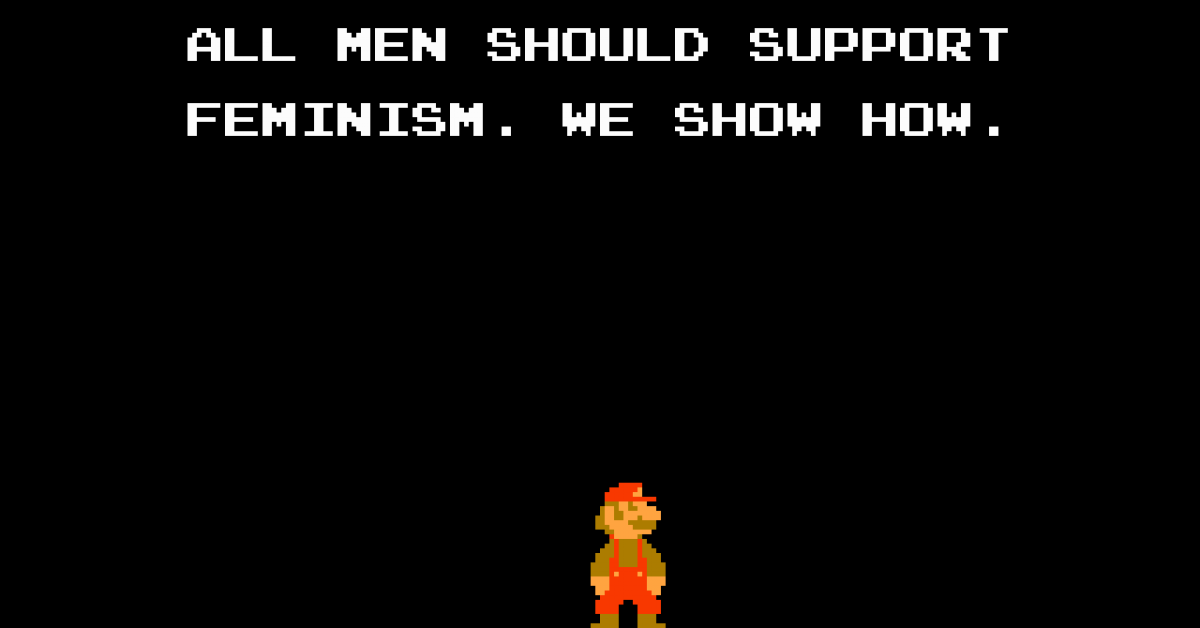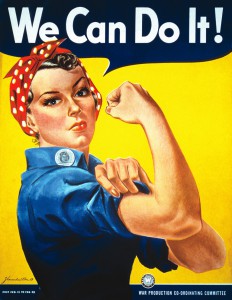Author: Karsten Jahn (coach & consultant)
Recently I attended a conference, dealing with organizational change. One of the sessions there was about human resources (HR). This is the department of an organization that is supposed to support individuals within the organization. Here people were talking about how to evaluate the skills of employees, how to train them and the role of leadership in all this. At one point during this session a young woman from the audience got up and confronted a high-ranked HR manager from a large German energy provider, also female, with an interesting subject.
The young woman said that she was at the very beginning of her career. She recently read that a study, which shows that the careers of women are often hindered by other women, not so much by men. This sounded counter intuitive to her, as she thought women would support each other.
The HR lady responded that she has never been hindered by other women or experienced a lack of support for that matter. She continued pointing out this would not happen in her company. All that in a tone, close to scolding. Which in my opinion shows a major lack of sympathy and basically already proves the point of the study. But she continued talking, and not without pride in her voice (paraphrased):
“At our company we do not have a lot of female managers, especially in HR, even though a majority of the people in this division are women. But it’s not that they wouldn’t be able to, they do not want to go for a management career. Many young, skilled, intelligent women tell me that they rather not aim for higher management, the personal investment is way too high. So it’s a matter of choice, not of sexism.”
Instead of thinking critically about what the young woman said and discussing the very serious matter, she basically responds with disrespect and rejects the topic. That made me really mad. And I’m a white male, much further in my career. I can only imagine how the women that asked the question must have felt. Probably not encouraged, inspired or taken seriously, which is a shame, because exactly that is what HR should do. Encourage people, inspire them and take them seriously.
The question behind all this is, why do women not want to go for higher management and why do we want them to do that though. The answer is simple. Because we lack diversity. That’s also the reason why this question is not obvious to all of us. And sadly enough not even to the female HR manager…
Diversity is Valuable
We all want to learn, we all want to develop, it’s in our nature. And nothing supports this more than embracing the huge potential in the differences between and around us. People with different backgrounds add different perspectives, which help us reflect on what we do and what we think we know. That’s how we learn. Your sense of taste won’t develop if you always eat the same things, no successful musician only listens to the same type of music, no athlete just keeps repeating the same exercise. Variety is important.
When it comes to people, diversity relates to everything we can be different in: Gender, culture, ethnicity, age, sexual orientation, disabilities, etc. Even mixing cat and dog people is valuable.
 But instead of mixing we often group with those that are similar. Psychologists explain this by the way our brain is set up. We feel more secure with those that are similar to ourselves, trust them easier. That’s why expats always stick to one another. And within each expat community you’ll find subgroups sorted by nationality. Or maybe by religion or language. And of course all of which are gossiping against each the other groups and all together against the host nation. It’s easier, it’s our comfort zone.
But instead of mixing we often group with those that are similar. Psychologists explain this by the way our brain is set up. We feel more secure with those that are similar to ourselves, trust them easier. That’s why expats always stick to one another. And within each expat community you’ll find subgroups sorted by nationality. Or maybe by religion or language. And of course all of which are gossiping against each the other groups and all together against the host nation. It’s easier, it’s our comfort zone.
We say that birds of a feather flock together. And it’s true, it’s deeply rooted in our brains. That’s probably how we ended up with racism and sexism to begin with. But humans became very smart. And we found out that those who dare to leave their comfort zone, can achieve higher results. Our history books are full of examples for this. Embrace differences is leaving the personal comfort zone. Which is never easy. For no one. But it might be worth it.
Research shows that teams of knowledge workers, who have to operate creatively, are better equipped when they are staffed heterogeneously. Diverse teams achieve more. Designers collaborating with engineers, technicians with business people, senior with junior. Major synergies spark, when the mix works. But everyone has an experience, where it did not. It was probably build to fail and then served as a reasoning for people to not try again. So now we usually have homogeneous teams, everyone is similar.
Adding new perspectives would be hugely beneficial, though. But we have to want it ourselves, else it will just fail again. So we need to support minorities (i.e. underrepresented genders, age groups, cultures, whatever). And it’s not the minority as such, but it’s about looking at every person’s individual skills and needs, which emerge from their culture, their gender and so on.
If we just give them a desk and tell them our schedules, it will fail again. If we don’t adapt our styles so it comforts others, we will only get those that “convert” to our style. That is not really what we want. No one should have to change who they are in order to be successful. Only if we’re free to be ourselves, we can be truly creative. It’s time to fire the next stage…
Waves of Feminism
Feminism, as in the fight for women’s rights, is being classified in different waves. The first one was about acknowledgment and ended around 100 years ago in the western world (whatever that is). In focus were basic legal issues and to understand that women are people, too, who deserve the right to vote, to drive a car and such.
The second wave of feminism was then about extending the legal equality and had its peak in the 1960s and 1970s in large parts of the western world. Women are able do the same things as men and they have to be allowed to do that, too. Families, education, jobs… we had to adjust our laws so that women had the same options as men and that domestic violence became illegal. It was forbidden for women in Germany to play football until 1970, by the German football association.
Both waves of feminist activity were a revolution mostly dedicated to white middleclass women. According to the norms of the white male. The result, our current reality in large parts of the western world, is that we actually get to meet women in higher management positions. Very few ones, though. And most of those are “masculinized”. They appear in a business look, which is a merely female version of the men’s suit. They have to follow the lifestyle of business men. They have to play according to the rules of patriarchy. Again, not exactly what we have in mind, when we’re thinking about equality. Patriarchy is still up and running.
The third wave of feminism is addressing exactly that, taking care of the individual and their needs. It’s not just about women anymore, it’s about individuals. No privileges due to gender, sexual orientation, culture, ethnicity, etc. We don’t really know how true equality would look like, but let’s go for it, because more people will be able to live and work the way they want. And happy people are more efficient workers, resulting in products and organizations of higher quality.
What we need to do…
This brings us back to the HR lady from the conference, who said that many women at her company don’t want to go for higher management career, as the demand does not fit their lifestyle. Those are intelligent women that deny being squeezed into a structure that was created for someone else. And so they should!
We have to understand that it’s not their loss, if they don’t want to aim for a career like this, but ours. We need diversity in our societies and organizations. But we are not prepared for that. Expecting others to adopt to our system, which does not work for and barely accepts minorities, is obviously ridiculous. Yet, that is what we keep doing. We’re still stuck in wave 2.
I would expect that HR managers are aware of this. And I would expect that women in management are aware of this. A higher ranked female HR manager that is proud that their management level lacks women, because they use their freedom of choice, is mind-boggling and makes me really mad.
Our business world has been created by white men, to suit their own lives. That is a fact. We might not necessarily see it straight away, but that’s the problem with privileges. They are invisible to those, who have them (Michael Kimmel). We have to find solutions so that people can have a management career and a family at the same time. We have to find solutions so that people of different cultures can collaborate without having to abandon their own background.
Diversity is not necessarily comfortable. But it’s worth it. Let’s get out of our comfort zones. Let’s get rid of patriarchy. Let’s get rid of privileges for majorities, so that we can get rid of majorities. All that hinders diversity, which we need to be better, smarter, more creative and flexible. As a society as well as an organization.
Let’s empower minorities and listen to their needs.
Hi, my name is Karsten and I’m a feminist.
(This blogpost has originally been published here.)

 But instead of mixing we often group with those that are similar. Psychologists explain this by the way our brain is set up. We feel more secure with those that are similar to ourselves, trust them easier. That’s why expats always stick to one another. And within each expat community you’ll find subgroups sorted by nationality. Or maybe by religion or language. And of course all of which are gossiping against each the other groups and all together against the host nation. It’s easier, it’s our comfort zone.
But instead of mixing we often group with those that are similar. Psychologists explain this by the way our brain is set up. We feel more secure with those that are similar to ourselves, trust them easier. That’s why expats always stick to one another. And within each expat community you’ll find subgroups sorted by nationality. Or maybe by religion or language. And of course all of which are gossiping against each the other groups and all together against the host nation. It’s easier, it’s our comfort zone.
 I’m heading home from, let’s say, from a night out with friends, strolling through a quiet part of town, and I’m walking behind a woman. She’s a bit slower than I am and I’m slowly catching up. And all of a sudden, I realize how uncomfortable she might be feeling. So I’m beginning to walk a bit slower, adding some distance between me and her. But yet again, since this is a deliberate decision, I’m getting the feeling of being somehow manipulative. It’s a dilemma.
I’m heading home from, let’s say, from a night out with friends, strolling through a quiet part of town, and I’m walking behind a woman. She’s a bit slower than I am and I’m slowly catching up. And all of a sudden, I realize how uncomfortable she might be feeling. So I’m beginning to walk a bit slower, adding some distance between me and her. But yet again, since this is a deliberate decision, I’m getting the feeling of being somehow manipulative. It’s a dilemma.